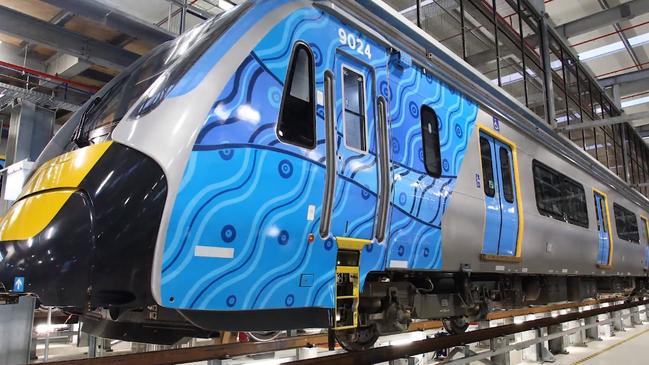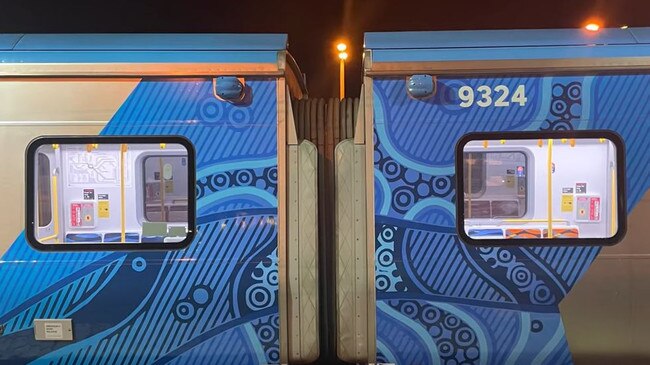Melbourne train driver’s ‘acknowledgement of country’ at Richmond station
Passengers on the Frankston line were surprised when the train driver made an “acknowledgement of country” over the PA system.

Victoria
Don't miss out on the headlines from Victoria. Followed categories will be added to My News.
A common gesture of respect for Aboriginal people has spread to the public transport system, with one commentator branding it “virtue signalling”.
Passengers on the Frankston line were surprised recently when the train driver made an “acknowledgement of country” over the PA system.
The female driver gave a nod to the traditional owners of “Narrm” — an Aboriginal word for Melbourne — and paid respects to current and future community elders.
A passenger told the Saturday Herald Sun that the acknowledgment was made at Richmond Station when passing another train that was decorated in Aboriginal livery.
“I saw one guy roll his eyes,” the passenger said.
“Is this tokenism really necessary, people just want to get to and from work, they don’t want a sermon on the way.”

Institute of Public Affairs Foundations of Western Civilisation Program director Dr Bella d’Abrera said virtue signalling did nothing to solve real issues being faced by Indigenous Australians.
“Public Transport Victoria needs to get its priorities straight. It is to get commuters from A to B, not to show them how woke it is.”
However, the Department of Transport said Metro Trains had received positive feedback from passengers regarding the driver’s acknowledgment of Aboriginal artwork on the train.
“Operational staff, including train and tram drivers, play an important role to inform passengers of any impacts or changes to their services,” a spokeswoman said.
“We are proud to support the new HCMT train decorated by artwork by Mandy Nicholson, Wurundjeri woman and Traditional Owner of Narrm currently travelling on the Cranbourne and Pakenham lines.”
Acknowledgements of country have been made in forums like local council meetings, parliaments and at government events for years, but the practice is spreading fast through the private sector, including by airlines.
People being interviewed on radio have done it, while recently an Australian Bureau of Statistics employee made the acknowledgment before providing data from the latest census.
Indigenous affairs commentator and social scientist Anthony Dillon predicted correctly a few years ago that the gesture would be made on commercial flights.
“Am I a fan of it, no. Am I going to oppose it, no,” he said.
“What I don’t want to happen is that if someone doesn’t want to do it, that that’s seen as a sign of disrespect or whatever.”
“It should be a very personal thing, if you want to do it, great, if you don’t want to do it, don’t.”




